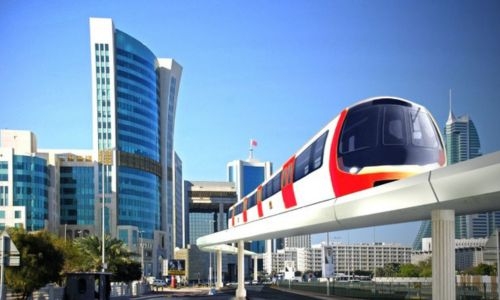Bahrain is currently undergoing substantial investments into its $8 billion transport infrastructure, with key projects like the Bahrain Metro Project and the King Hamad Causeway set to reshape the Kingdom’s economy and improve regional connectivity. These initiatives are a part of Bahrain’s Vision 2030 plan, aiming to boost economic growth and development in the country. As part of the 2021 economic recovery plan, over 22 strategic infrastructure projects worth more than $30 billion have been unveiled, including the development of five artificial islands through public-private partnerships.
One of the significant developments highlighted in a report from Mordor Intelligence is the modernisation of Bahrain International Airport, a $1.1 billion project awarded to Arabtec TAV, a joint venture involving companies from the UAE and Turkey. This project aims to enhance the airport’s capabilities and make it a key transportation hub in the region. Additionally, construction is underway on the King Hamad Causeway, a new rail and road link that will run parallel to the King Fahd Causeway, further integrating Bahrain with Saudi Arabia and improving connectivity between the two countries.
Central to the infrastructure development in Bahrain is the Bahrain Metro, a 109-kilometre light rail network that will provide efficient transportation options for residents and visitors. This project is expected to boost the Kingdom’s public transport system and reduce traffic congestion on the roads. With the increasing focus on green and sustainable initiatives, the Bahrain Metro will play a crucial role in reducing carbon emissions and promoting eco-friendly transportation in the country.
The development of the Bahrain Metro and other key infrastructure projects is seen as a strategic move to support Bahrain’s economic growth and diversification. By investing in modern transportation systems, the country aims to attract more business opportunities, create jobs, and improve the overall quality of life for its residents. These initiatives also align with Bahrain’s commitment to sustainable development and environmental preservation, as the Kingdom looks towards a greener and more environmentally friendly future.
In addition to the economic benefits, the infrastructure projects in Bahrain are expected to enhance the country’s regional connectivity and strengthen its position as a key player in the Gulf region. With improved transportation links to neighboring countries like Saudi Arabia, Bahrain is well-positioned to capitalize on trade and tourism opportunities, further boosting its economic growth and development. The completion of projects like the Bahrain Metro and the King Hamad Causeway will not only benefit the Kingdom but also contribute to the overall prosperity and stability of the region.
Overall, the significant investments in Bahrain’s transport infrastructure signify a bold step towards achieving the goals set out in Vision 2030. By modernising key transportation hubs, developing new infrastructure projects, and promoting sustainable transport options, Bahrain is paving the way for a more prosperous and connected future. With a strong focus on economic development, job creation, and environmental sustainability, the Kingdom is positioning itself as a leading player in the region and a model for other countries looking to enhance their infrastructure and drive economic growth.


























